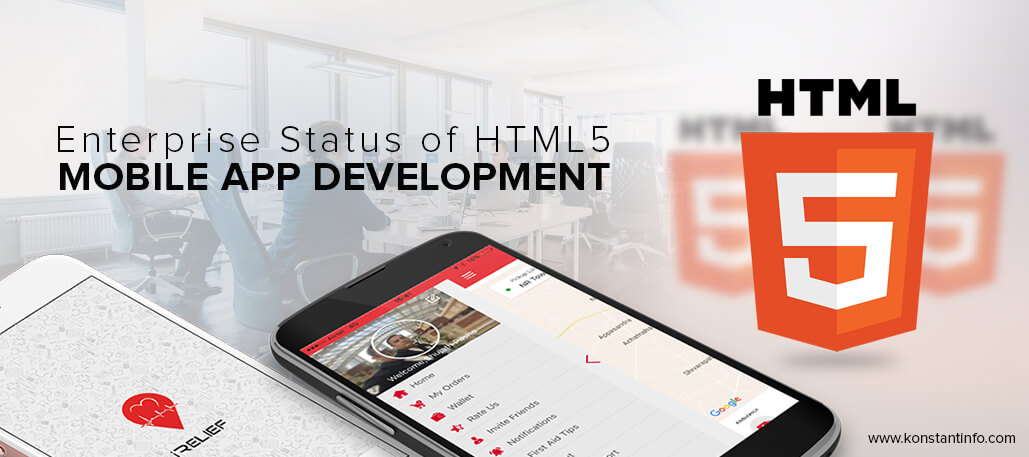
HTML 5 has been long held as a technology serving the mobile community to build immersive applications across different utility verticals. Allowing developers to refer to the authentic HTML programming that belongs to the advanced coding technology and the tool set and features that fall in compliance with their latest app development needs, HTML 5 allows developers with great ability and scope to go with hybrid app development.
To that reference, as per a recent study, more than 60% of developers have migrated to HTML 5 & hybrid for their app development needs. The report further suggests, over 70% of developers are using more of these technologies compared to the last year and 75% plan to engage more into HTML 5 for their development needs in future. On being asked about their plans to shift to other development technology, only 4% of HTML developers said they would shift to native against 19% of native developers who showed interest to move to hybrid development.
Among the most important reasons behind this level of acceptance is that multi-device application deployment is now the standard and is supported by most of the development channels and technology resources. Owing to this trend the choice among businesses and users to go with just one platform has gone down to meager levels making only 20% of developers to go with mobile-only platforms and only 30% of developers doing just the web.
Which is well responded and supported by the idea of web-app trade-offs, proposing the trend in favor of a single web app to run on different mobile platforms and devices.
This trend clearly shows up in the enterprise arena, with HTML 5 gaining popularity across all business verticals – making it much evident that it is going to stay and rule the app service vertical in days to come.
And that is well supported by the fact that it can be highly cost-effective to opt for the hybrid over the tailored, single device development. As it would not carry the cost for developing it separately and porting the app to new OS. And this difference in cost can go anywhere from 50% to 70%.
However, if you consider the downside, common-platform development is not very supportive in terms of security and most of the enterprises still consider it to be just as secure as the browser it is grounded on. Thus, HTML 5 app’s performance is based on how technically capable the browser is. Take for example, if you are looking to build a camera functionality into your app, but the browser on which the app would be running doesn’t come with the plugin to allow access to the camera feature, it will be a lot cumbersome to be able to run smoothly. However, these HTML 5 hitches have been subdued by making them a lot faster and dynamic in the way they respond to technology resources and web services.
Well, all these factors put together stand good to support the fact that hybrid apps offer enough potential for a more modern approach towards development that emphasizes more on apps establishing sweeping comprehensive reach – supported by more liberated ways of committing to a gamut of services that are preferred by new-age businesses and users looking to develop dynamic cost-compliant solutions.
In that reference, to help enterprises reach their perspective of HTML5 solution, Konstant Infosolutions is resourcefully serving them with authentic HTML5 mobile application development that perfectly fall in their equation of utility and benefits. Get in touch with experts at Konstant to know how they can help you with HTML5 development meeting all your needs around the technology



A marketing graduate, a deemed strategist, a sure geek - Tushar is a fine blender of the art and science of writing. When it comes to tune up content with commerce, he knows the trick. For him, if words don’t make you think and beat, they are not worth your time. A crazy foodie, an unfailing jogger – that’s him off the desk!
Or send us an email at: [email protected]